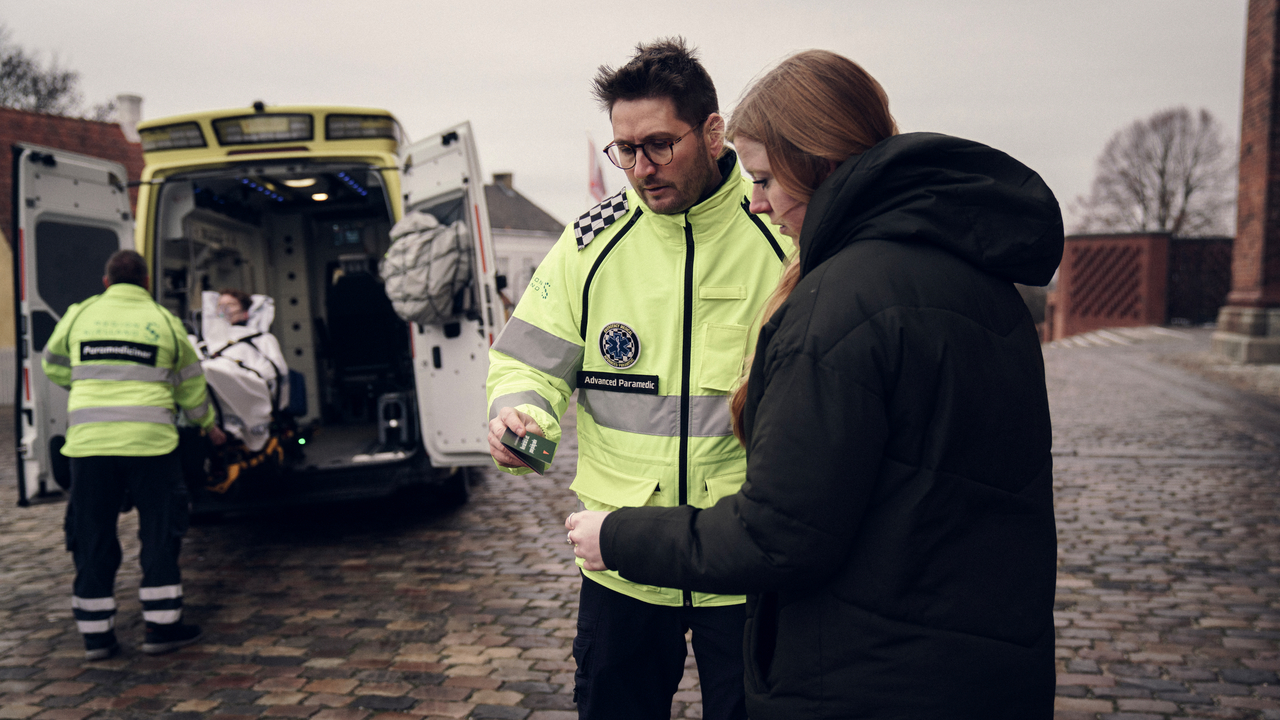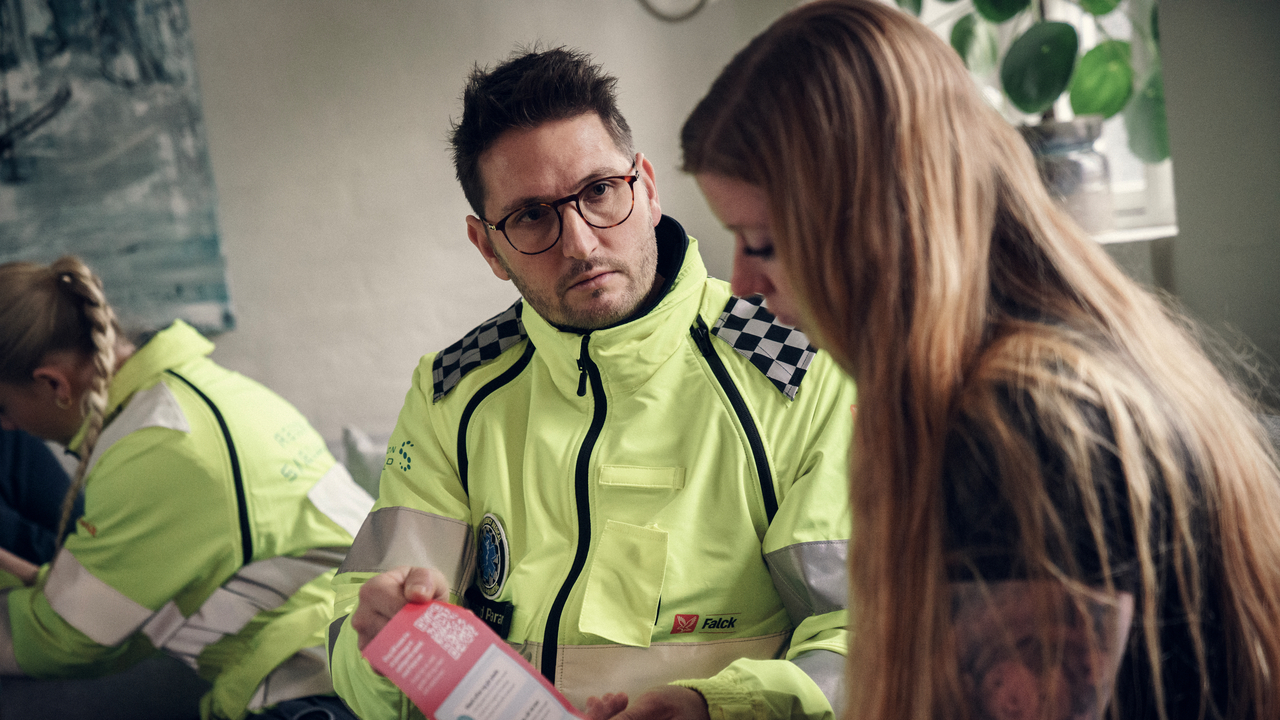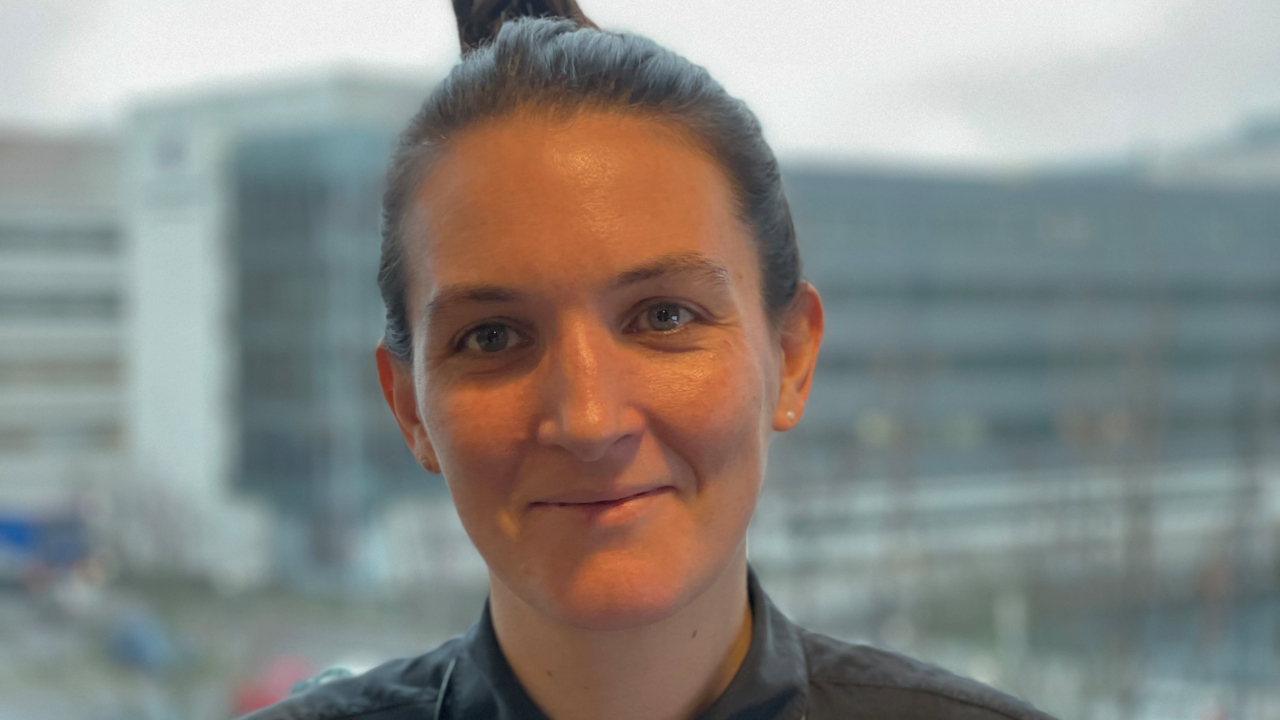“We have 5,000 cardiac arrests in Denmark each year. There’s always someone watching.”
- Paramedic
Bystanders play a critical role prior to the ambulance arriving – they call for help, they help coordinate the scene and also provide lifesaving interventions – yet, no one is formally responsible for their health and well-being after the emergency is over and the ambulance leaves.
Witnessing or intervening in an emergency can be a traumatic experience. If bystanders don’t have the support or tools to process the event effectively, it can lead to mental health consequences in the future. Of the bystanders who experience a life-threatening emergency, 1 in 4 develop some psychological symptoms - they might have flashbacks, trouble sleeping or more emotional highs and lows.
“Afterwards I was lying in my bed and crying, I didn’t understand what happened. Could I have done anything differently in some way? I still feel like it’s my fault he died.”
- Bystander


